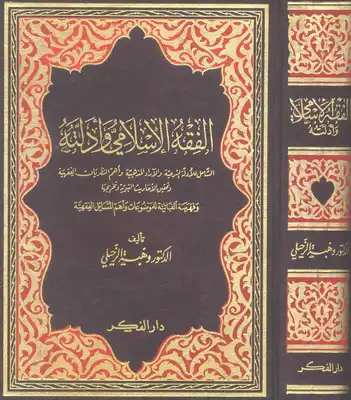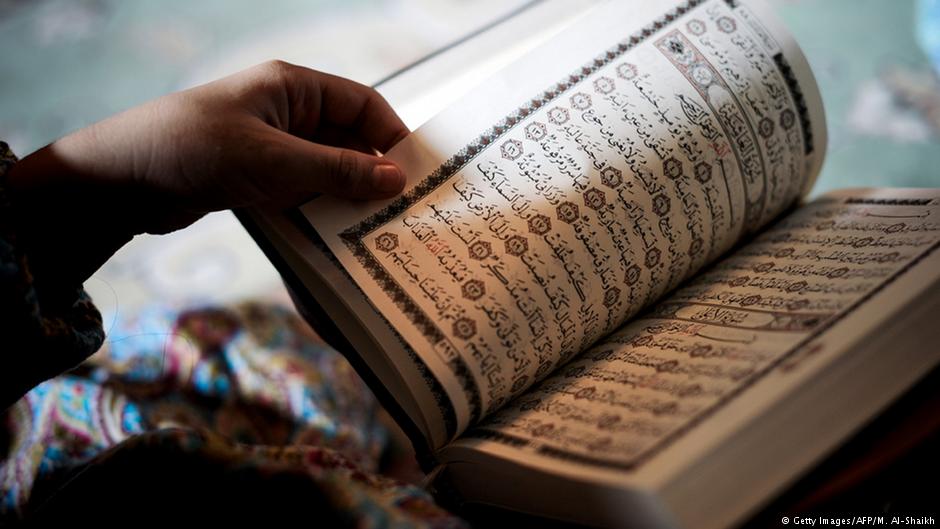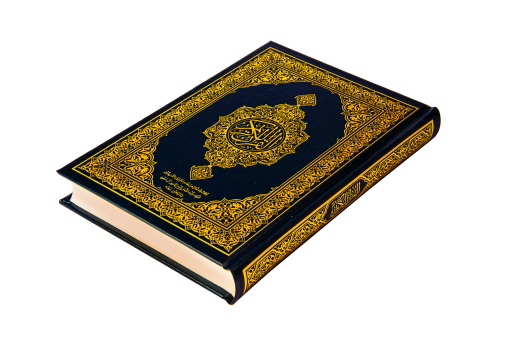
22 February 2025
 Islamic Jurisprudence: An In-Depth Understanding of Fiqh
Islamic Jurisprudence: An In-Depth Understanding of Fiqh

Islamic jurisprudence, or “Fiqh,” is a broad field of law within the Islamic tradition that covers every aspect of the life of a Muslim. It is based on the Quran, Hadith (sayings and actions of the Prophet Muhammad), Ijma (consensus), and Qiyas (analogy). In this article, we will explore the concept, history, types, and sources of Fiqh, along with its application and evolution through time.
What is Fiqh?
Fiqh, often translated as Islamic jurisprudence, refers to the understanding and interpretation of Islamic law. It is the scholarly process of deriving legal rulings from the primary sources of Islamic law, i.e., the Quran and Hadith. Fiqh helps Muslims navigate every aspect of their lives, including worship, personal conduct, family matters, business, and criminal justice.
The Role of Fiqh in Islamic Society
Fiqh is crucial for maintaining justice and order in society. It is through Fiqh that Islamic values are translated into actionable laws. These laws cover a wide range of topics including but not limited to:
- Rituals and religious duties (Salah, Zakat, Hajj)
- Marriage, divorce, and family matters
- Business ethics, contracts, and transactions
- Criminal law and punishment
Fiqh ensures that Muslims are aware of their religious obligations and that their social conduct aligns with the divine will as set out in the Quran and the Hadith.
The Sources of Fiqh
The Quran
The Quran is the primary source of Islamic law. It provides the foundational principles upon which Fiqh is built. It contains direct legal rulings, as well as general guidelines that scholars interpret to derive further rulings. However, the Quran does not offer comprehensive legal codes for every situation, and hence, scholars turn to other sources to address specific issues.
The Hadith
Hadith refers to the sayings, actions, and approvals of the Prophet Muhammad (PBUH). It complements the Quran by providing detailed explanations and examples of how to implement the Quranic principles. Hadith is an essential source of Fiqh and provides practical guidance on a variety of matters. Scholars classify Hadith into different categories, such as Sahih (authentic), Da’if (weak), and Hasan (good), depending on their reliability.
Ijma (Consensus)
Ijma refers to the consensus of qualified Islamic scholars on a particular issue. When there is a unanimous agreement among scholars of a specific era on an interpretation of Islamic law, this consensus is considered binding. Ijma plays a significant role in interpreting and applying the law in situations where neither the Quran nor Hadith provides a clear ruling.
Qiyas (Analogy)
Qiyas is the process of analogical reasoning to derive legal rulings in new situations by drawing comparisons with similar cases from the Quran or Hadith. Scholars use Qiyas when there is no direct ruling from the Quran or Hadith but a similar case exists in the sources. The application of Qiyas ensures the law remains relevant to contemporary issues.
Other Sources of Fiqh
In addition to the four main sources, there are a few other tools used by Islamic scholars to derive legal rulings. These include:
- Istihsan: The use of personal judgment to override a strict interpretation when it would lead to an unjust or unreasonable result.
- Urf: Local customs and traditions, as long as they do not contradict Islamic principles.
- Istislah: The principle of public interest, which allows for rulings that promote the welfare of the community.
Types of Fiqh
Sunni Fiqh
Sunni Islam, the largest branch of Islam, has developed four major schools of Fiqh. These schools offer different interpretations of Islamic law but share the same core principles.
The Hanafi School
The Hanafi school, founded by Imam Abu Hanifa, is one of the oldest and most widely followed schools of Fiqh. It emphasizes personal reasoning and the use of Qiyas. The Hanafi school is prevalent in parts of South Asia, Central Asia, and the Balkans.
The Maliki School
Founded by Imam Malik, the Maliki school emphasizes the practices of the people of Medina, as they were considered to have the closest understanding of the Prophet’s traditions. This school is primarily followed in North Africa.
The Shafi’i School
Imam al-Shafi’i, the founder of the Shafi’i school, placed a strong emphasis on the Hadith and sought to establish a systematic methodology for interpreting the Quran and Hadith. The Shafi’i school is followed in parts of East Africa, Southeast Asia, and the Arabian Peninsula.
The Hanbali School
Imam Ahmad ibn Hanbal established the Hanbali school, which is known for its strict adherence to the Quran and Hadith. It rejects the use of Qiyas unless there is no clear ruling from the primary sources. The Hanbali school is primarily followed in Saudi Arabia.
Shia Fiqh
Shia Islam has its own unique approach to Fiqh. While it also relies on the Quran and Hadith, the Shia school places particular importance on the teachings of the Ahl al-Bayt (the family of the Prophet), especially those of Imam Ali and the Twelve Imams. Shia jurisprudence has its own method of deriving rulings, which is distinct from Sunni jurisprudence.
The Process of Deriving Fiqh
Ijtihad: Independent Legal Reasoning
Ijtihad refers to the process of exerting effort to derive legal rulings through independent reasoning. This process is primarily performed by qualified scholars known as Mujtahids. These scholars engage in a deep understanding of the Quran, Hadith, and other sources to provide solutions to contemporary issues that were not explicitly addressed in classical texts.
Ijtihad plays a crucial role in modernizing Fiqh and ensuring it remains relevant in addressing new challenges faced by Muslim societies. However, it requires a high level of expertise and is not open to everyone, as it demands an in-depth understanding of Arabic, Islamic sciences, and historical context.
The Role of Fatwa
A fatwa is a formal legal opinion issued by a qualified Islamic scholar or jurist. It provides guidance on specific issues where the primary sources may be unclear or where there is no consensus. Fatwas are not binding in the same way as legal rulings but serve as important advisory opinions that help Muslims navigate contemporary challenges.
Fiqh in Contemporary Society
Modern Challenges and the Role of Fiqh
In the modern world, Islamic law is applied in diverse ways across Muslim-majority countries. In some countries, Fiqh forms the basis of the legal system, while in others, it serves as a guiding framework for personal matters such as family law. Islamic finance, based on Fiqh principles, is also a significant area of development, with banks and financial institutions offering Sharia-compliant products.
However, the application of Fiqh in contemporary society faces challenges. Issues such as women’s rights, environmental protection, bioethics, and the digital economy require ongoing scholarly work to address them within the context of Islamic law. The evolution of Fiqh through Ijtihad is vital in making Islam adaptable to modern circumstances.
Islamic Finance and Fiqh
Islamic finance is based on principles derived from Fiqh, such as the prohibition of interest (Riba), risk-sharing, and ethical investment. Financial products such as Sukuk (Islamic bonds), Islamic mortgages, and insurance are structured according to Islamic legal principles. Islamic finance has gained global recognition as an alternative to conventional banking systems.
Conclusion
Fiqh is an essential part of Islamic tradition that encompasses every aspect of Muslim life. Through its roots in the Quran and Hadith, Fiqh serves as a guide for both individual conduct and societal governance. Over time, Islamic scholars have developed various schools of Fiqh to address the ever-evolving challenges of society. By continuing to engage with Ijtihad and Fatwa processes, Fiqh remains relevant and adaptable to the needs of modern Muslim communities.
Search
Categories
Tags
Recent Posts

The Role of Women in Islam: An In-Depth Perspective
The role of women in...

What are the Key Principles of Islam?
Islam is a major world...

Islamic Jurisprudence: An In-Depth Understanding of Fiqh
Islamic jurisprudence, or "Fiqh," is...

The Most Important Hadiths of Prophet Muhammad (PBUH)
The teachings of Prophet Muhammad...

The Five Pillars of Islam
The Five Pillars of Islam...
